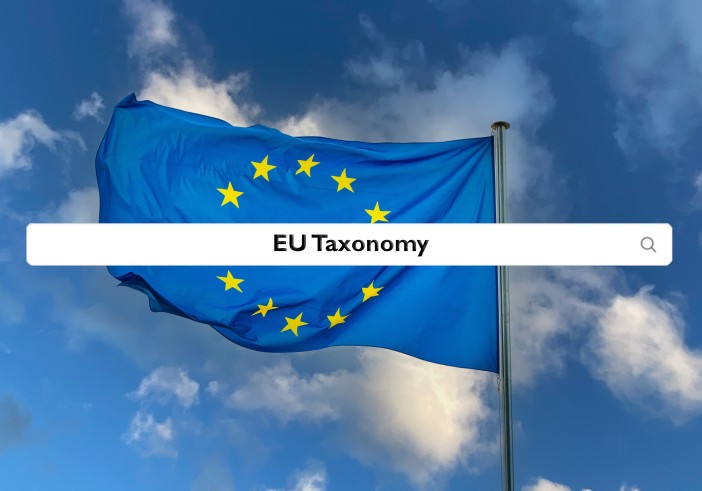
Tax ruling in the European tax law
Prof. Pont interest into the question of tax ruling, is that it has gone from being a half-obscure institution used by a few multinationals in the Netherlands and Luxembourg and a few other places, to being practically the cause of the ‘piece of cheese’ that is missing because of tax fraud. And he would simply like to restore things to their more natural state.
Tax ruling in the European tax law
Prof. Pont interest into the question of tax ruling, is that it has gone from being a half-obscure institution used by a few multinationals in the Netherlands and Luxembourg and a few other places, to being practically the cause of the ‘piece of cheese’ that is missing because of tax fraud. And he would simply like to restore things to their more natural state.
Barcelona, 7th November 2024
Prof. Pont interest into the question of tax ruling, is that it has gone from being a half-obscure institution used by a few multinationals in the Netherlands and Luxembourg and a few other places, to being practically the cause of the ‘piece of cheese’ that is missing because of tax fraud. And he would simply like to restore things to their more natural state.
Tax ruling, the existence of tax agreements between the Treasury and taxpayers, is situated within the general framework that his research team at the University of Barcelona and himself have been studying for some time, almost a decade, that of the generation of the increase in consented administrative acts. Once again, we have opted not to study how to reduce conflict, but rather the positive way, how to contribute to taxpayers' acceptance of administrative acts and, therefore, how these administrative acts can be produced so that they merit acceptance by taxpayers. Well, tax agreements, like all tax rulings, as in general, advanced tax agreements, serve to generate consented administrative acts, which is positive, it is an element that generates legal certainty and, thirdly, in effect, it is an element that reduces conflict. Because tax uncertainty and insecurity are a problem to which we must be able to respond as jurists and tax consultants. They constitute a serious problem in the development of economic life, business life and, in general, the life of operators and taxpayers, and the need to overcome this problem does not only stem from the fact that it is convenient, civilised and competitive, but also because one of our basic legal principles is the guarantee of legal certainty.
Prof. Pont believe that everything that helps to resolve tax uncertainties through advance agreements should be viewed positively: carrying out the consultation, obtaining a binding resolution and the adoption by the taxpayer of the decision as to whether or not to carry out the operation in the light of the consultation and the response obtained. This generates a certain displeasure and even scandal in some tax authorities because they realise that if the response does not grant the possible favourable regime that the taxpayer was hoping for, they may not carry out the operation, and therefore tax avoidance will occur in the sense of avoidance associated with the mere non-fulfilment of the taxable event. It is clear, in any case, that this theoretical avoidance is an abstract concept with a limited scope when analysing conduct.
Joan-Francesc Pont proposal is to distinguish the good use from the bad use of tax rulings and not to criminalise them as a general undesirable institution. The Commission has recognised the importance of advance tax rulings as a tool for generating legal certainty for taxpayers and, if they do not create advantages for specific economic operators, if they do not discriminate, they fall outside EU law. However, it is no less true that since 2013 the Commission has been investigating tax ruling practices from the perspective of state aid. Aggressive tax planning as an instrument of tax avoidance had begun to enter the EU's political agenda with the adoption of the 'Code of Conduct' on business taxation and the setting up of a working group, which began to analyse from 1998 - without prejudice to the exclusive competences of the Member States in this area - those tax measures that might be contrary to the Code and which involved or could lead to effective levels of taxation lower than those applied by the Member States of the Union.
In his speech Prof Pont describes the main items of the Apple case.
In his opinion, the possibility of the existence of agreements between states and taxpayers cannot be considered as a negative element. He is against the demonisation of tax rulings, when they follow OECD rules and do not constitute state aid. The key is comparability and therefore non-discrimination between operators in one country or another. It is no less true that when the approach is bilateral, when two Member States are dealing with the distribution of profits of a business group between them, the possibility of discrimination decreases dramatically.
The Commission has proposed a definition of tax ruling as any communication or other instrument or action of similar effect given by or on behalf of a Member State which relates to the interpretation or application of its tax laws, therefore, these tax rulings are assessed positively by the Commission and those which result in the concealment of income or assets in order to pay less tax, which is an illegal activity or fraud and also those which result in tax avoidance and corporate tax avoidance are assessed negatively.
In short, what we can agree on is the fight against aggressive tax planning, because it implies an incorrect distribution of the tax portion that corresponds to each State. The solution lies in increasing transparency and loyalty, first and foremost between taxpayers and the Treasury and, at the same level, between the Member States themselves.
Joan-Francesc Pont Clemente, Phil. Dr.







